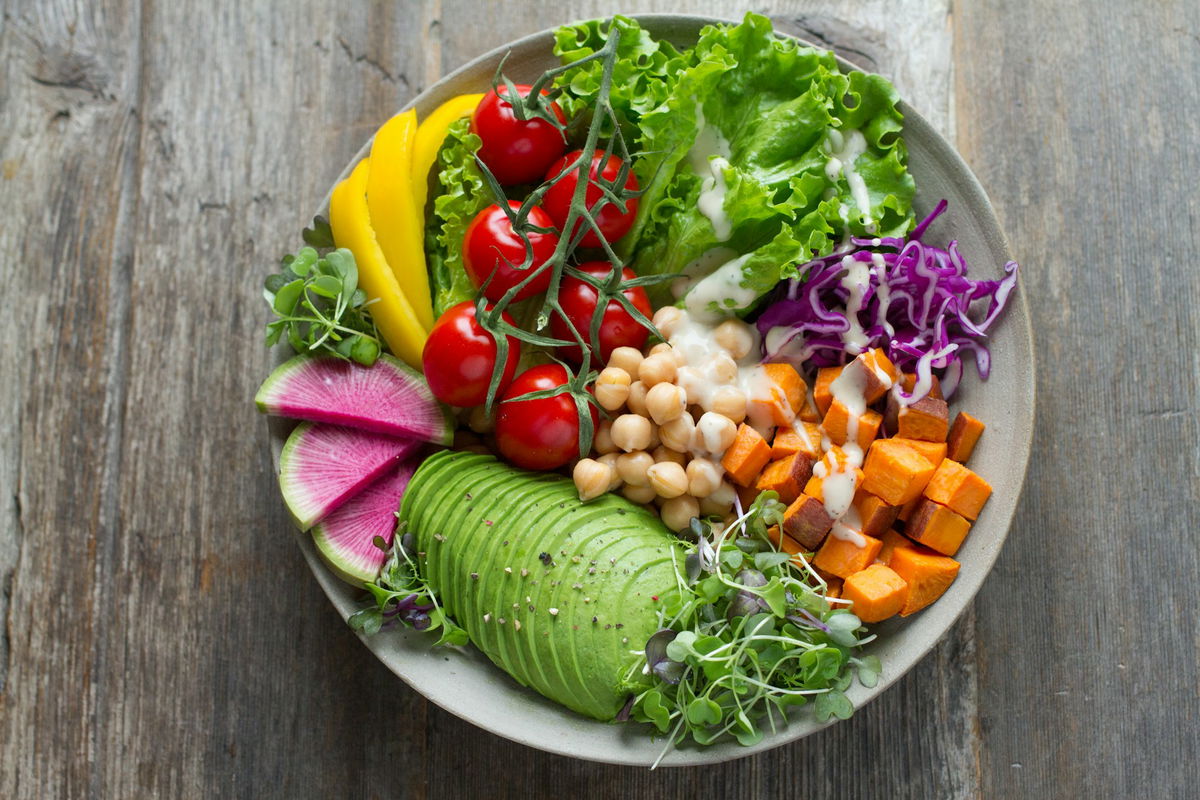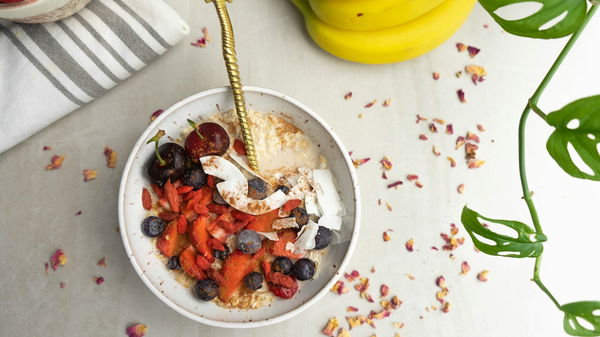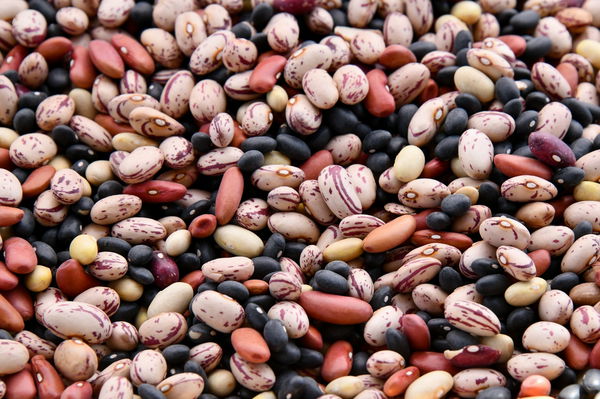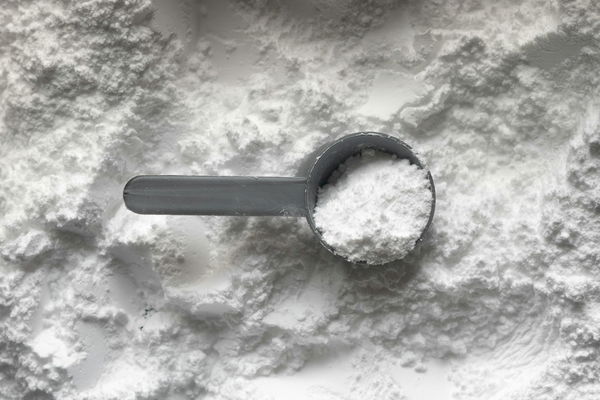

Proteins are the building blocks of the body. Muscles, bones, organs, skins, nails, and hair are all composed of essential nutrients like proteins. So, the building blocks of the body play a massive role in helping you put on muscle. Hence, bodybuilding and fitness enthusiasts turn to protein when building muscle. While animal products are an easy-to-obtain complete protein source, not everyone eats meat.
Watch What’s Trending Now!
Thankfully, there are plenty of plant-based sources for your muscle-building goals. However, the widespread myth that people who don’t eat animal products don’t get protein has continued to persist. While most plant-based sources don’t offer complete protein, there are easy workarounds to the problem that require no extra effort.
ADVERTISEMENT
The plant-based complete protein
When you’re discussing plant-based sources of the essential macronutrient, soy, and its derivatives are an abundant and affordable option. The versatility of soy foods is boundless. Tofu, tempeh, edamame, and seitan are some of the most popular soy foods. What do all these have in common? They are high (complete) protein foods.

ADVERTISEMENT
Seitan has 24.7 gm of protein per 100 gm. Tempeh comes in at a close second with 20 gm of the essential nutrient. Meanwhile, Tofu and Edamame contain about 12 gm of our body’s building blocks per 100 gm. However, these are by no means the only sources of soy protein. Soy and its derivatives are numerous, and all of them are rich in the macronutrient.
ADVERTISEMENT
Additionally, soy foods like Tempeh are fermented foods. Fermented food reinforces the gut microbiome with probiotics, leading to better digestion. Almost all soy foods are also rich in muscle recovery-supporting micronutrients like B vitamins, magnesium, folate, vitamin K, calcium, and more. Hence, soy foods are some of the best protein-rich plant-based you’ll come across.
Top Stories
Why Tadalafil Is Used in Bodybuilding: Is It Actually Safe and Effective?

Everything You Need to Know About Mr. Olympia’s Sole Owner Jake Wood, Who Also Brought Ms. Olympia Back

As Rumors of Nick Walker and His Girlfriend’s Break Up Spreads Through Internet, the Bodybuilder Urges Fans to Refrain From “Negativity”

Who Is Angie Feliciano? The Woman Jay Cutler Has Been Engaged to for 7 Years

4X Mr. Olympia Jay Cutler, Who Spent Millions on Diet Tries KFC for the First Time in 50 Years: “It’s Not Great”

Many have questioned the high estrogen content in soy affecting muscle building negatively. However, research shows the concerns may be overblown. Seven-time Mr. Olympia Arnold Schwarzenegger wrote that studies have not yet found phytoestrogens in soy causing significant hormonal changes.
ADVERTISEMENT
How to complete the incomplete
While soy is a source of complete protein, one can’t have only a say in their diet. Despite their rich nutrient value, soy doesn’t have every macro and micronutrient you need in a day. However, this is where the skeptics criticize plant-based diets because nearly no other plant-based source provides all the essential amino acids.
While proteins are the building blocks of the body, amino acids are the building blocks of protein. Animal products contain all the essential amino acids that we need. However, the vast majority of plants only have a few of the essential amino acids. However, mixing and matching various plant sources easily completes the amino acid profile of a food.
ADVERTISEMENT

Dishes combining different legumes, beans, nuts, and seeds often offer the macronutrient with its competing amino acid profiles. Lentils, which fall under legumes, offer 9 gm of protein per 100 gm. Combining different lentils into one dish results in an almost complete source of all essential and many non-essential amino acids.
ADVERTISEMENT
There are numerous types of lentils and innumerable combinations you can try. Beans and chickpeas also fall under legumes and offer a good amount of protein. Kidney, black, pinto, and most other beans contain around 9 gm of the muscle-building current. Chickpeas also offer similar protection. Legumes are also rich in micronutrients that support muscle recovery.
Seeds are also an excellent source of protein. Hemp, chia, and tahini seeds are among the best plant-based sources. Hemp seeds contain 9.5 gm of protein in just three tablespoons, tahini contains 5 gm per two tablespoons, and chia has 5 gm per three tablespoons. Seeds also contain Omega-3 fatty acids.
While nuts and greens also provide our body’s building blocks, they aren’t as high in protein as the ones already mentioned. However, if all else fails, then plant-based supplements have your back.
ADVERTISEMENT
A revolutionary source of protein
While whey protein has existed for a long time, the invention of plant-based protein supplements revolutionized how much protein vegan bodybuilders could consume. While whey is made from cow milk, plant-based supplements use soy and peas. Just like whey supplements, plant-based ones also have a complete amino acid profile and added vitamins and minerals.
ADVERTISEMENT

Plant-based supplements also help people who can’t digest whey due to lactose intolerance. Since neither soy nor pea contains lactose, people with high lactose intolerance also benefit from it, even if they don’t follow a plant-based diet.
Hence, despite this, it is possible to put on muscle from a purely plant-based diet as well. Meeting your protein goals shouldn’t be a hassle combining the best plant-based protein sources.
ADVERTISEMENT
ADVERTISEMENT
ADVERTISEMENT

